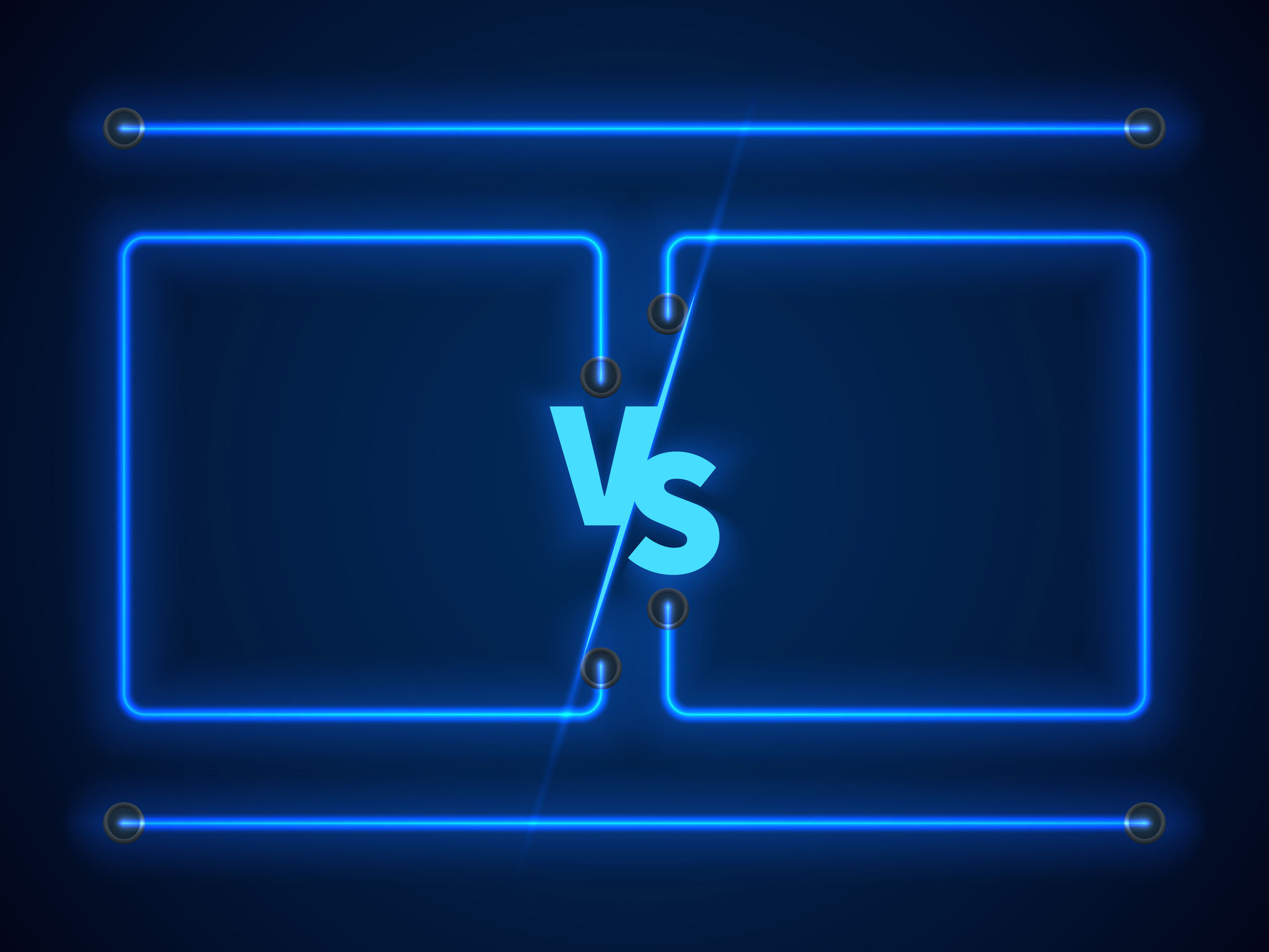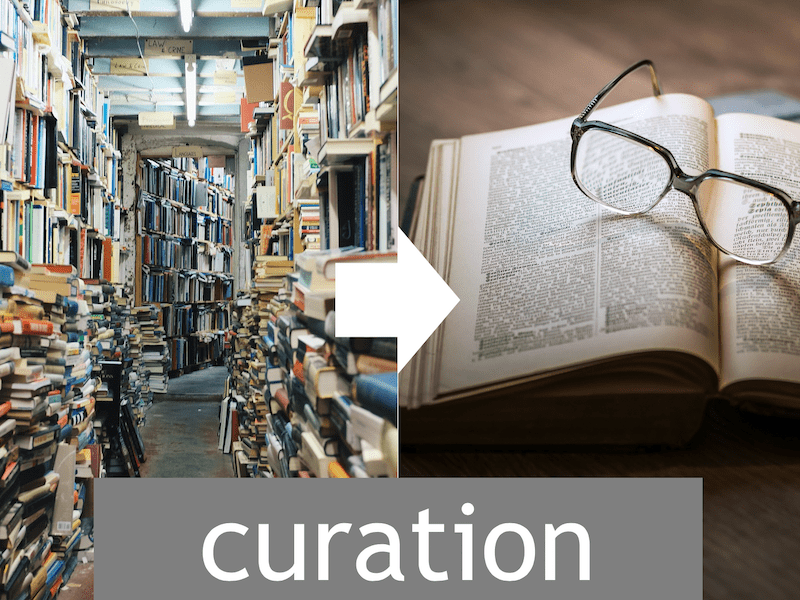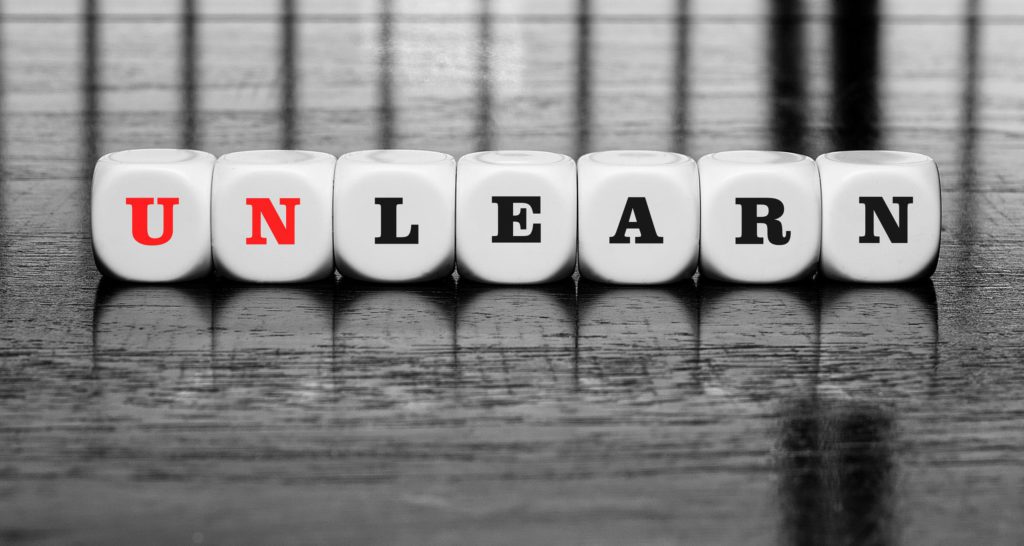I too often read articles or hear people talk about “learning” when what they are clearly referring to is education. The two are not the same, and I believe that recognizing and appreciating the difference – understanding learning vs education – is a critical part of becoming the effective lifelong learners we need to be in our current world.
Learning vs Education: How Are They Different?
I’ve previously defined learning as:
the lifelong process of transforming information and experience into knowledge, skills, behaviors, and attitudes
Education is just one option within this process. It is one approach to learning among many others. And, it’s usually a systematized approach that is developed, structured, and directed by people other than ourselves.
Education tends to be about taking classes, earning credentials, acquiring and proving the acquisition of knowledge and skills – again, all activities and outcomes governed by parameters set by others.
We tend to inflate the role of formal education, established knowledge, and the credentials associated because it produces relatively clear signals that can be seen and used as social and economic capital. All of our other experiences – that is, most of life – while often much more valuable, are much fuzzier and harder to convert into standardized signals.
By its very nature, education also tends to be conservative (in the non-political sense). It passes along and preserves what is already known – the established narrative – and it tends to treat the narrative as epistemological (the basis of knowledge and knowing) rather than instrumental (a means to an end). This sort of conservatism is at the very heart of traditional teaching (which nearly always benefits from a greater emphasis on epistemological modesty).
Learning, on the other hand, is inherently progressive. It is always in the process of happening. The person who is learning is actively changing. Learning causes change, and change causes learning.
Learning is also a mindset.
Ideally, it’s what we bring to education, what helps us to move beyond what was and what is to what could be. There are so many ways in which we learn. Sometimes these are represented in education; very often they are under-represented or even actively suppressed.
Why does it matter?
There is nothing inherently negative about education. We very often need structures and systems to help us learn and clearly there can be significant benefits to passing along and preserving what is already known. But problems arise when we start treating education and learning as the same thing.
Why?
Well, when we equate learning with education, we’re more likely to focus on generating answers. On providing structure; on optimizing for performance and achievement.
Again, that’s not inherently bad, but we tend to over do it. We jump to conclusions too early and we inevitably provide solutions that work for only a subset – often a minority – of those we aim to serve, and often only for a limited time.
Worse, we provide answers that may be harmful to many of those we aim to serve. We wind up with a situation analogous to what we have in health care (at least in the U.S.) where interventions and treatments are prioritized over prevention and root causes.
Real learning, on the other hand, is about questions, about navigating ambiguity. To reference my definition again, it is as much about attitude and behavior as it is about knowledge and skills. Arguably it is more about these things in our current environment.
When we emphasize education as an approach to learning, our bias is to focus too much on cognition.
Again, the result is analogous to the situation in healthcare, where we tend to overemphasize the biological at the expense of the psychological and social, not fully appreciating that health – like learning – is multi-faceted.
We also tend to shift responsibility – and with it, freedom – away from the learner when we confuse education with learning. Too much responsibility gets placed on teachers and institutions, not enough on learners. As a result, we don’t really provide learners with the support they need. But learning doesn’t really happen without the learner’s involvement and effort, and the more the learner can take responsibility for the involvement and effort, the better.
In general, we simply miss a lot when we equate education with learning. Education isn’t the answer to everything. In fact, it is arguably becoming much less important, at least in its usual, traditional forms. Given the pace at which knowledge now flows and changes, and the ability for machines to learn nearly anything that has been systematized and structured, we arguably can’t educate ourselves fast enough.
Education remains useful, but learning is what is really needed to navigate our current world.
What needs to change?
So, if learning and education are different, and the learning vs education difference matters, what needs to change?
For starters, we – and particularly those in positions of influence – need to be more careful about language, more careful not to use the words “learning” and “education” interchangeably, but rather to use each in its proper place.
This may seem like a trivial or pedantic point, but language matters. Language shapes the world.
Next, we – as societies, as businesses, and certainly as educators – need to put much more emphasis on real learning, including educating (yes, that would be the proper word here) people about learning, about how to learn. As Malcom Knowles put it, it’s a tragic fact that most of us know only how to be taught. That needs to change.
Those of us in traditional educational roles – meaning not just teachers, but also parents, managers, and leaders of every stripe – need to focus less on teaching in the traditional sense and more on allowing for and generating contexts in which learning can happen. Allowing for ambiguity, for wasting of time, for tinkering, for questioning, risk taking, and failure. (All of the cliches of the business world apply here because business, when it is actually pursued productively, is a learning activity.)
Finally (for now), we need to appreciate much more deeply the degree to which learning and life are interwoven.
Learning is not confined within the walls of an institution or the structure of a class. It happens in the flow of life. It is rooted in physicality and emotion as much as in cognition. When we shift to seeing learning in this way, it becomes much easier to recognize and take advantage of the myriad opportunities for learning that we encounter daily.
Some of these opportunities will, of course, arise in the context education. But the vast majority will not – because education and learning are simply not the same thing.
Being insistent about understanding learning in its broadest and deepest sense is not just an academic exercise. It is critical for navigating the complexities of the world and making our way toward as much of a shared truth as we can find. If we take the parochial view of learning as merely education, we limit ourselves dangerously.
JTC
See also:
- This Is Learning
- Can we educate ourselves fast enough?
- 6 Disciplines of the True Learning Mindset
- A Short Collection of Powerful But Under Appreciated Learning Strategies






Something stuck out to me in this article when you said “Well, when we equate learning with education, we’re more likely to focus on generating answers.” This is really profound since the seed to an answer/s is asking the right question/s. I think education today is too focused on rewarding students for getting the right answers instead of rewarding them for asking questions that will help them arrive at an answer. They are missing half of the equation when answers are the priority.
I do think there is a difference – I’d frame it as learning is about the desire to obtain knowledge and improve one’s life and mindset, while education tends to be a structured, formal way to gain knowledge on a topic. So for one who is interested in learning, an education is one way to fulfill the desire to learn, but there are many other ways as well. Self-directed reading, hands-on experience, or taking a variety of local workshops are all alternative ways to learn without being an education.